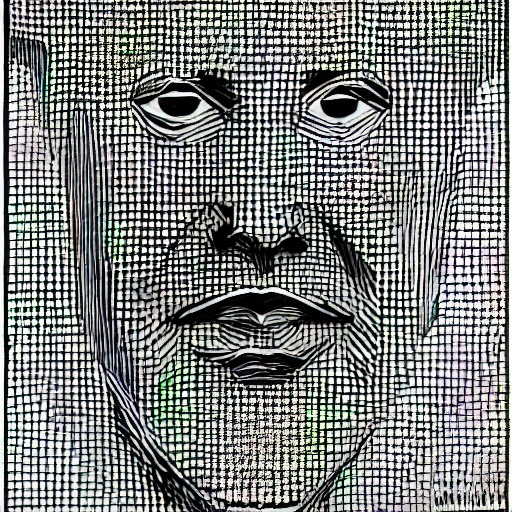Is this some sort of remnant of evangelical puritan protestant ideology?
I don’t understaun this.
If you ask me, it’d make as much sense as Orthodox and Christians… or Shia and Muslim…
I know not all Christians are Catholics but for feck’s sake…
They’re all Christians to me…
Edit:
It’s a U.S thing but this is the sort of things I hear…
https://www.gotquestions.org/Catholic-Christian.html
I am a Catholic. Why should I consider becoming a Christian?
I now know more distinctions (apparently Catholicism requires duty and salvation is process, unlike Protestantism?) but I still think they’re of a similar branch (Christianity) so I just wonder the social factor
Growing up in a “non-denominational”, independent fundamental Baptist house I was always taught that Catholics weren’t Christians because they worship idols. Now that I’ve left the faith I would easily classify them as being Christian.
While I think many people actually do classify them as Christians they do have some significant differences in their beliefs and practices than most Protestant denominations; and being themselves the largest Christian denomination by far it can be useful in some analysis to treat them as a distinct entity (the answer to “percentage of global population that subscribe to a particular religion” is much more interesting when broken into “Christian Catholic: %” and “Christian Other: %”).
If anything Catholicism is much more traditionally Christian, as it’s the stablished status quo outside of the anglosphere.
That’s seen as a negative. “Holy tradition” is seen as an extreme departure, although most Protestants wouldn’t even know the term because opening the catechism is nearly as bad as the satanic bible (especially among evangelicals).
What does “non-denominational” mean? Isn’t Baptist the denomination?
In this context it was meant as a joke. Several Baptist institutions incorrectly label themselves as being “non-denominational” even though they are completely ideologically aligned with the independent Baptist movement.
All the non-denominational churches are just a denominational church in denial. Pentecostals use it a lot too, but it’s pretty obvious once you know
Oh shit! Independent Fundamental Baptist! I had to deal with living with that shit, too. At the end of the day, if the king james bible was good enough for Peter and Paul, it’s good enough for me. Also, rock music is the devil.
I went to Bob Jones. There was a kid there got in trouble playing the guitar cause what he was strumming had “that sound.” No lyrics, just him strumming it wrong was sinful. Ain’t no way that kinda teaching gonna fuck someone up for life.
I went to a small private Christian high school too. Our Junior year we did a “college tour” to check out Christian Colleges. We visited Bob Jones, and I was blown away. That place is fucking wild. I’m glad I settled on Penn State in the long run.
Catholics see themselves as the root form of Christianity that other versions forked from. Whilst it’s not technically true, as there are many versions of Christianity that pre-date Catholicism, in most countries where the term “Catholics and Christians” is used, it’s accurate enough
They have the next outgroup to eliminate lined up in case they run out of minorities to discriminate against.
Catholics are one of America’s og boogeyman. They used to fear the idea of a catholic president who could be influenced by the pope. I’m not sure when that went away.
Catholics are Christians, but Christians are not necessarily Catholic. For example, Orthodox Christians are not Catholic. Being Catholic requires, at the bare minimum, agreement with the Holy See and implicitly the dogma he endorses. Even this “minor” difference can be used to find non-Catholic Christians.
Precisely, Catholic ⊊ Christian.
The reason why this is the case has to do with the history of Christianity, specifically the various schisms throughout the ages as the Christian faith evolved. That’s an incredibly complicated topic which I’m not qualified to discuss.
Catholics are Christians, but Christians are not necessarily Catholic. For example, Orthodox Christians are not Catholic. Being Catholic requires, at the bare minimum, agreement with the Holy See and implicitly the dogma he endorses. Even this “minor” difference can be used to find non-Catholic Christians.
I know that, but if you ask me, it’s like saying Sunni and Muslim, one kinda emphasizes, if not “otherizes” (orientalize or occidentalize) the other… usually in a not good way…
One kinda emphasizes, if not “otherizes” the other… usually in a not good way…
Yeah. People have been killed over being Catholic in a non-Catholic Christian society and people have also been killed over being a non-Catholic Christian in a Catholic society.
But that doesn’t mean that we can’t or shouldn’t differentiate at all between the dogmas of Catholics and the wider practice of Christianity.
(orientalize or occidentalize)
I mean there are lots of non-Catholic Churches with European origins, for example Lutheranism and Anglicanism. So I think it’s a bit more complicated than “otherizing” with respect to that specific dichotomy.

Jesse, WTF are you talking about
I’ve never heard the phrase Catholic and Christians before. Catholic vs Protestant maybe.
I worked with a Southern Baptist guy who legitimately thought Catholic aren’t real Christians.
I have no idea how he thought Southern Baptism is somehow more Christian than the much much older version.
Ketchup and condiments
Discrimination and division are like 99% of what religion is about.
I was raised evangelical protestant in the USA, at some point attending both Seventh-day Adventist and Pentacostal churches. My mother did not consider my Catholic grandparents to be Christians, based on her belief that one cannot be saved by confession/prayer to a saint or clergy instead of directly to Christ. As many other have said, this is not the mainstream definition.
Protestants came about at the same time printing and reading became more common. People came to understand the bible better. They found that their local priest or Catholic church wasn’t representing the bible very well. Some priests couldn’t read and were just making it up.
Catholics practice many things that go against the teachings in the bible. They worships false profits (saints, Mary, popes, etc). They practice religion with lots of ceremony and publicity. They also acted as gatekeepers to God, despite Jesus talking about having a personal relationship with God.
The Catholic church was caught out and many people were unhappy with it. So they left it in protest. Hence protestant being used to describe these new enlightenment era Christians.
A protestant would not think that leaving the Catholic church is abandoning God. They would have to see it as the right path to follow God. It’s not consistent for a protestant to say they follow the teachings of Christ and the Catholic church is Christian. Any protestant saying Catholics are Christian hasn’t put a great deal of thought into it. However, it would be appropriate for someone studying, categorising or discussing religions to call both Catholics and Protestant’s Christians.
There is also a long history of discrimination between Catholics and Protestants. Protestants country’s retained more of their own wealth and political decision making. Protestantism was more successful in places where literacy was higher. Both these factors lead to protestant countries being wealthier, more prosperous and lead to earlier and more successful industrialisation. This created the situation that many people were immigrants from Catholic countries to protestant ones. Like today, they faced discrimination. The religious difference of the incoming immigrants heightened the conflict. This also made it easier for people in both religions to see it as separate and different.
There’s plenty of great commentary here about why Christianity is divided up into different sects, but I think you’re primarily interested in the narcissism of small differences. (https://en.m.wikipedia.org/wiki/Narcissism_of_small_differences)
Basically, if you’ve read about Dr. Suess’ Starbellied Sneeches, you get the idea. Human brains are exceptional pattern recognition machines, and when a society is so homogenously Christian then those small differences become the cleavages along which identities form. That leads to things like Catholic / Christian divisions and the formation of the best joke in The Guardian history:
Once I saw this guy on a bridge about to jump. I said, “Don’t do it!” He said, “Nobody loves me.” I said, “God loves you. Do you believe in God?”
He said, “Yes.” I said, “Are you a Christian or a Jew?” He said, “A Christian.” I said, “Me, too! Protestant or Catholic?” He said, “Protestant.” I said, “Me, too! What franchise?” He said, “Baptist.” I said, “Me, too! Northern Baptist or Southern Baptist?” He said, “Northern Baptist.” I said, “Me, too! Northern Conservative Baptist or Northern Liberal Baptist?”
He said, “Northern Conservative Baptist.” I said, “Me, too! Northern Conservative Baptist Great Lakes Region, or Northern Conservative Baptist Eastern Region?” He said, “Northern Conservative Baptist Great Lakes Region.” I said, “Me, too!”
Northern Conservative†Baptist Great Lakes Region Council of 1879, or Northern Conservative Baptist Great Lakes Region Council of 1912?" He said, “Northern Conservative Baptist Great Lakes Region Council of 1912.” I said, “Die, heretic!” And I pushed him over.
https://www.theguardian.com/stage/2005/sep/29/comedy.religion
There may be an earlier version, but I know this as an old Emo Phillips joke
They all generally affirm the same things though, it’s just the Bible doesn’t say exactly how to practice Christianity, so add two thousand years and weird theological technicalities like real presence (and how much real is the presence, it’s a spectrum), church structure and organisation, authority, etc, then you have a bunch of different denominations. Most of them though do actually respect each other in an ecumenical fashion. The “Catholics aren’t Christian” sect would be a fringe minority, the same type who would believe the world is 8,000 years old and that the KJV is the only proper English translation.
All the big (and probably small) schisms happened primarily for political reasons (i.e. material interests, power struggles). It’s just that lots of other issues (including small differences) tend to align themselves along the same lines, because I guess that helps with the polarization. Doesn’t mean this “narcissism of small differences” doesn’t exist, just that it’s not the cause, but rather part of the dynamic.
With all due respect, this is not reflective of the protestant revival movement in the US in the 1800s. The second awakening was absolutely a bunch of rival interpretations of the word claiming they were right b/c (insert reason here).
I probably should have been more specific in my original reply but when we’re taking about US “Catholics aren’t Christians” that’s 100 percent the origin of the trope. I can’t speak to the Irish version but I’d challenge anyone about it in the US. That’s why we needed an Ecumenism movement in the first place after all.
I have never heard anyone say that. Presumably they say it because they don’t know any better.
I was raised Catholic in a deeply Evengelical town. The little girls were saying out of the blue that I wasn’t Christian. I was like 8, they were like 6. They were absolutely parroting what their parents said, there’s no way the little girls I played with daily came up with that shit on their own, and since then I’ve noticed that’s one of the “protestant culture” things that gets passed around in those circles and occasionally escapes. That Catholics aren’t Christian because saints or whatever.
They get all wound up about the “pagan” elements of Catholicism then turn around and worship their dollar bill golden idols. Hypocrites!
But basically, Catholics get crapped on when there’s no other minority around and they are tired of talking about Jewish folks.
I don’t practice, I’m atheist, but in the USA from a culture perspective Catholics aren’t in the WASP good old boy group, even if you are otherwise white. And WASP types are happy to let you know it, although its less common than it was a few decades back.
Biden being Catholic, and JFK before him, is basically a dog whistle to certain rightwing groups to make them lose their shit, it’s just less obvious than, say, Obama being black esp if you don’t have a family background that would expose you to that stuff.
I’m aware of the history, but didn’t know it still lingered. Maybe it’s a regional thing. I haven’t run into this in the metropolitan Northeast or metropolitan West Coast regions. But also I’ve been atheist my whole life, so the topic has seldom come up.
I grew up going to various Christian schools as a kid. While it wasn’t a common viewpoint, I did hear of it from time to time.
The reason behind it, to my knowledge, was that Catholic practices would often be significantly different from other denominations’ practices. The biggest thing I can think of is the veneration of and praying to saints.
The biggest thing I can think of is the veneration of and praying to saints.
Which, ironically, is a core part of Abrahamic religions which was abandoned by Protestantism. I.e. Catholicism didn’t add minor gods, Protestantism removed them.
Fun fact: the “-el” at the end of all angel names (except Lucifer and Satan, I guess) means “god”. Not as in “from god”, but as in “the god of-”.
As an American who was raised Lutheran, who was taught a bunch of Romance-Euro-centric world history in school, I always considered Roman Catholic to be the “default” flavor of Christianity. Protestantism in all of its forms are hard forks. It’s in the name, even–the Roman Catholic church is what Protestants are “protesting”.
To unironically “-and Zoidberg” Catholicism out of Christianity while leaving Protestant flavors included feels completely backwards. I’ve never heard anyone do it.
But if I did, I could only assume it was due to some No True Scotsman bullshit. “Only we practice the correct way. Everyone else isn’t just interpreting it differently, but interpreting it wrong.” Sounds like an Evangelical line of thought to me.
Because some sects of Christianity (mostly Southern Baptist) are fucking insane and spiteful.
I can maybe understand it if they’re talking about UUs. Speaking as one, we’re not entirely sure what the hell we are either. We’re in committee trying to figure that out. </self_deprecating_joke>
Once I saw this guy on a bridge about to jump. I said, "Don't do it!" He said, "Nobody loves me." I said, "God loves you. Do you believe in God?" He said, "Yes." I said, "Are you a Christian or a Jew?" He said, "A Christian." I said, "Me, too! Protestant or Catholic?" He said, "Protestant." I said, "Me, too! What franchise?" He said, "Baptist." I said, "Me, too! Northern Baptist or Southern Baptist?" He said, "Northern Baptist." I said, "Me, too! Northern Conservative Baptist or Northern Liberal Baptist?" He said, "Northern Conservative Baptist." I said, "Me, too! Northern Conservative Baptist Great Lakes Region, or Northern Conservative Baptist Eastern Region?" He said, "Northern Conservative Baptist Great Lakes Region." I said, "Me, too! Northern Conservative Baptist Great Lakes Region Council of 1879, or Northern Conservative Baptist Great Lakes Region Council of 1912?" He said, "Northern Conservative Baptist Great Lakes Region Council of 1912. I said, "Die, heretic!" And I pushed him over.-Emo Philips
This is actually a shortened version of the original.
That type of specification would probably never happen.
just about every christian I know sees other sects and offshoots as a separate religion. it’s very sneech-like.
Catholics believe in a religious hierarchy, Cardinals, bishops, Pope e.t.c.
Christians USUALLY think hierarchy in religion is almost blasphemous. But really it’s just so they can kinda just do whatever the fuck they want and not worry about the Pope excommunicating them.
same shit different pile?
Schism was the very first thing the Christian church learned to do.
Christian was the case that they gave me










